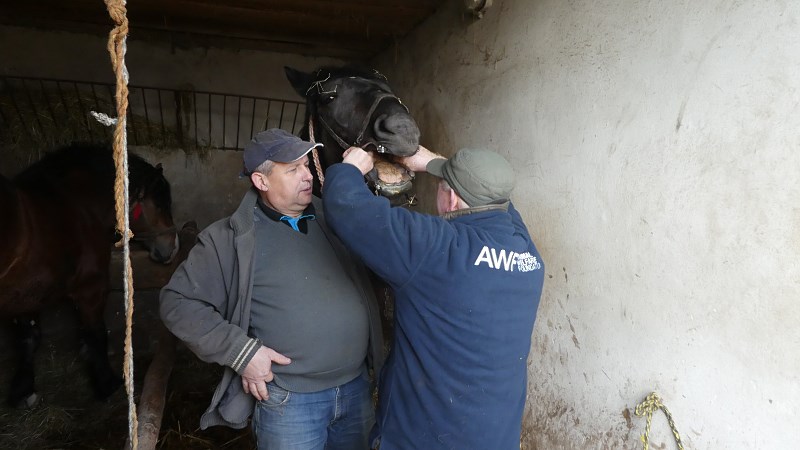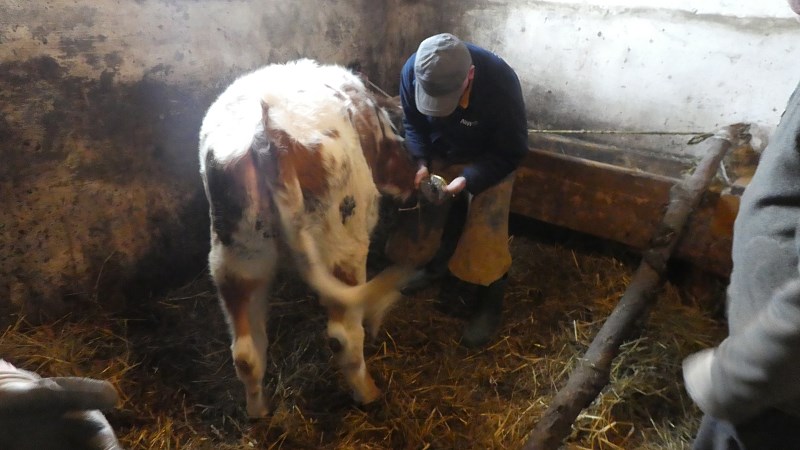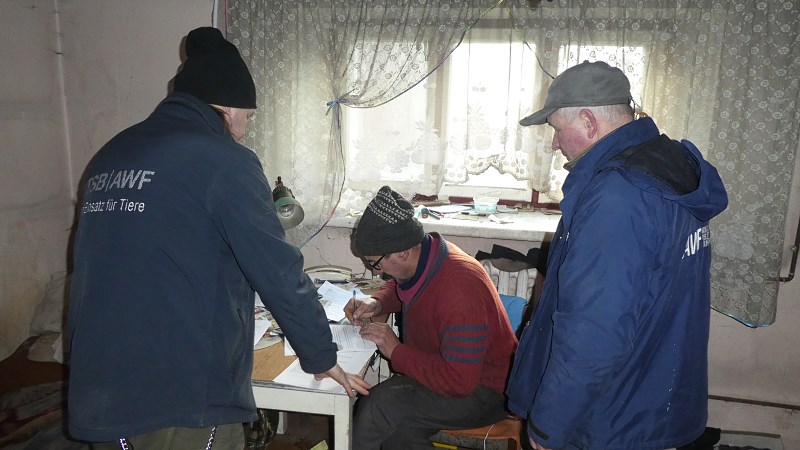Poland | Swietokrzyskie | Monthly Report January: Farm Animal Service
This month our Farm Animal Service (FAS) team starts their work on a farm in Celiny. Our plan is to trim the hooves of a young mare. However, when we arrive the mare is not willing to cooperate and does not leave her stable. We are trying to convince her, but we do not succeed. Therefore, we have to stop our work for now. In the meantime, the owner needs to work with the young mare, so that she is willing to leave her box for when we return. Our next visit is on a farm in Gosciecin. The owner is building a new fence for a paddock. He shows us his progress and explains that he started with installing concrete poles. As a reward for his work we trim the hooves of his mare.
Afterwards, we are called to two farms. Both farms have stallions who have difficulties whilst eating. On the first place in Bodzentyn, we find the cause for the problem very easily. The teeth have very sharp edges and seem to injure the inside of the horse's mouth. Therefore, we decide to trim the stallion’s teeth. However, it will take a couple of days before he will get used to it and will be able to eat normally again. On the second farm in Psary, the teeth of the stallion are in a good condition. But the stallion’s stomach looks swollen and his coat is dull and ruffled. To us it looks like the stallion has a problem with parasites. Therefore, we decide to deworm him.
Next, we are visiting two farms that are interested in joining our ATET programme which aims to improve the living conditions of farm animals. Our team already knows the owners of the first farm. In the past, it was a very well-maintained place. However, things have changed in the meantime and the farm looks neglected. The buildings and the animals on the farm are generally in good condition, but the yard looks poor. Trash and a lot of old clothes are scattered all over the place. The farmer is keeping three cows and a 15-year-old mare together with his son. The cows are tethered by the horns. We inform them that this not acceptable and that they need to get halters instead. Moreover, we advise the owners to clean the yard. Afterwards we are signing the contract.
The second farm interested in our programme is in Wola Szczygielkowa. The place looks clean and well maintained. The farmers are keeping two milk cows, two calves and three young bulls. The cows are kept on halters or cattle collars whilst the bulls are tethered by their horns. We ask the owner use cattle collars or halters for the young bulls instead. He promises to do that. Since he seems to be cooperative and willing to invest in the welfare of his animals we decide to cut the long claws of a young cow in advance. Surprisingly, trimming goes very easily. The cow is very calm; therefore, it is very easy for our farrier to do his job.
For a second time this month, we are returning to the farm in Celiny where the mare had problems with leaving the stable. The owner did a good job and trained her to leave the stable on command. Now we can trim her hooves. It is the first time in her life that someone is trimming her hooves. She is a bit nervous, but she is very cooperative and picks her legs up easily.
In January, our team visited 25 farms in total. Our farriers trimmed the hooves of 14 horses, the claws of one cow and the teeth of one stallion. Moreover, three horses were dewormed. Additionally, two new farmers decided to join to our animal welfare incentive programme ATET.




